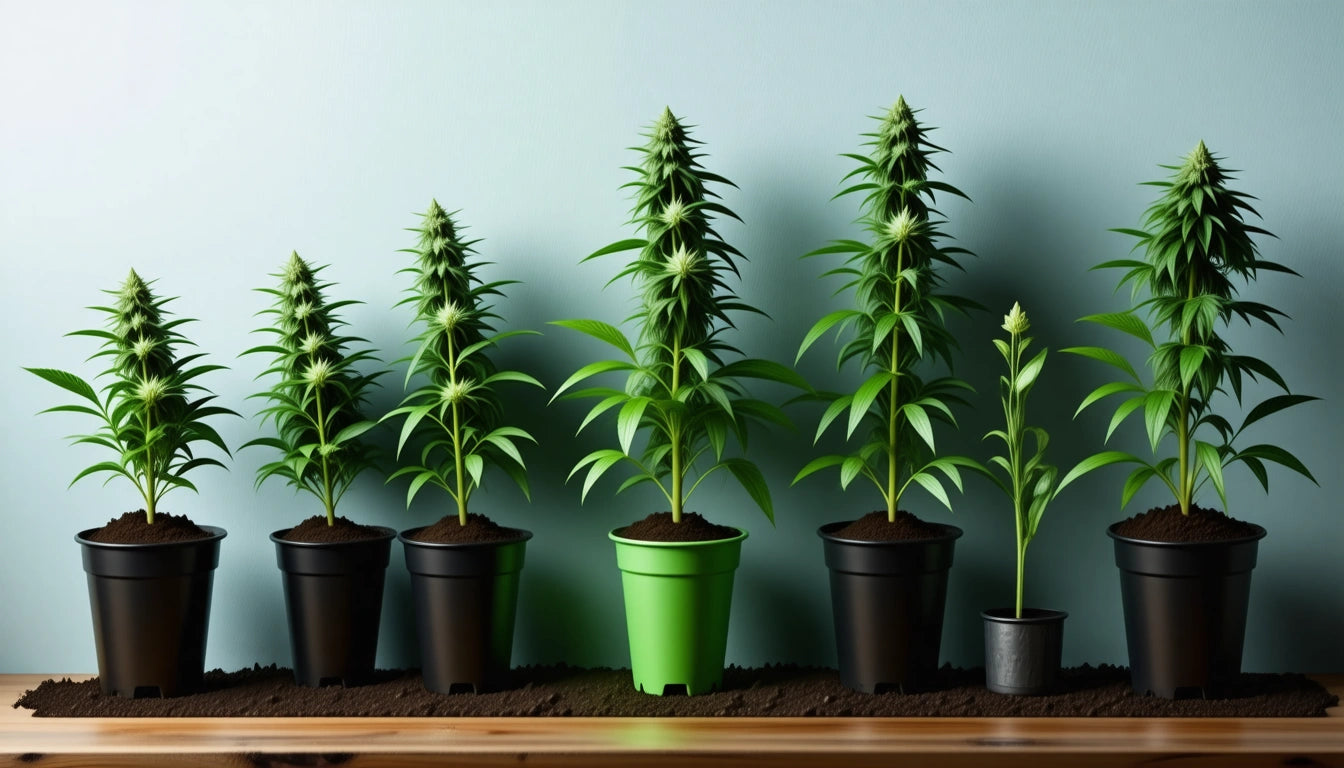Table of Contents
Do Joints Expire? Understanding the Shelf Life of Pre-Rolled Joints
Cannabis enthusiasts often wonder about the longevity of their products, particularly pre-rolled joints. Whether you've found an old joint tucked away in a drawer or are planning to stock up, understanding how long joints last is essential for maintaining quality and enjoyment. This guide explores whether joints expire, signs of deterioration, and best practices for storage.
Shelf Life Factors: What Affects How Long Joints Last
Pre-rolled joints don't have an official expiration date, but their quality definitely deteriorates over time. Several factors influence how long a joint remains fresh and potent:
- Moisture content: Too much moisture promotes mold growth, while too little causes the cannabis to become brittle.
- Exposure to air: Oxygen degrades THC and other cannabinoids through oxidation.
- Light exposure: UV rays break down cannabinoids and terpenes, reducing potency and flavor.
- Storage temperature: Heat accelerates degradation of the plant material and its active compounds.
Under ideal storage conditions, pre-rolled joints typically maintain optimal quality for 6 months to 1 year. After this period, they remain safe to consume but may offer diminished effects and flavor.
Signs of Expiration: How to Tell if a Joint Has Gone Bad
While joints don't technically "expire" like food products, they can certainly go bad. Here are indicators that a pre-roll has degraded:
Visual Indicators
Inspect the joint carefully for discoloration, particularly dark spots or white fuzzy patches that could indicate mold growth. If you notice any unusual coloration, it's best to discard the joint immediately.
Aroma Changes
Fresh cannabis has a distinct, often pungent aroma. If your joint smells musty, hay-like, or simply lacks its characteristic scent, the terpenes have likely degraded, indicating the cannabinoids may have as well.
Texture Assessment
The texture of a joint can tell you a lot about its condition. If it feels excessively dry and crumbles easily, or conversely, feels damp and spongy, these are signs that the joint has not been stored properly and may have lost potency or developed mold.
Proper Storage Techniques for Extended Joint Freshness
To maximize how long your joints are good for, proper storage is essential. Effective storage techniques can significantly extend shelf life while preserving potency and flavor.
Container Options
The best storage containers for pre-rolled joints are airtight and opaque. Options include:
- Glass tubes or doob tubes
- UV-resistant glass jars
- Purpose-made joint cases
- Smell-proof metal containers
Avoid plastic bags, which can create static that removes trichomes, and paper containers that don't provide adequate protection against air and moisture.
Location Considerations
Where you store your joints matters almost as much as how you store them. The ideal storage location is:
- Cool (60-70 °F or 15-21 °C)
- Dark (away from direct light)
- Dry (relative humidity between 59-63%)
- Stable (minimal temperature fluctuations)
A drawer, cabinet, or closet often works well, while refrigerators or freezers are generally not recommended due to humidity fluctuations that can occur when removing the joints.
Humidity Control: The Key to Preserving Pre-Rolls
Maintaining optimal humidity is perhaps the most critical factor in extending the shelf life of pre-rolled joints. Too much humidity promotes mold growth, while too little causes the cannabis to dry out and lose potency.
For efficient processing and consistent grinding before rolling, many producers use commercial-grade grinding equipment to ensure uniform particle size, which affects how the joint burns and how long it remains fresh.
Humidity control products, such as two-way humidity packs calibrated to 62%, can help maintain the ideal moisture level. These packs work by either adding or removing moisture as needed to maintain the perfect environment for cannabis storage.
Extending the Shelf Life of Your Pre-Rolled Joints
Beyond basic storage practices, there are several strategies to maximize the longevity of your pre-rolls:
Vacuum Sealing
For long-term storage, vacuum sealing is highly effective at preventing oxidation. However, this method should be used cautiously, as excessive pressure can crush the joints.
Separate Storage from Other Cannabis Products
Store pre-rolls separately from flower, concentrates, or edibles. Different cannabis products have different optimal storage conditions, and mixing them can compromise the integrity of your joints.
Regular Rotation
If you maintain a collection of pre-rolls, implement a first-in, first-out system. Consuming older joints first ensures you're always enjoying your collection at its best.
Quality Assessment Before Use
Before lighting up an older joint, take a moment to assess its condition. If you notice any signs of degradation as mentioned earlier, it may be better to start fresh with a new roll.
Understanding how to properly store pre-rolled joints not only preserves their quality but also protects your investment. With proper care, your joints can remain enjoyable for many months, allowing you to maintain a collection without sacrificing the experience.
Best Practices Summary: Maximizing Your Pre-Roll Investment
The question "do joints expire?" doesn't have a simple yes or no answer. While they don't become harmful after a certain date, they do gradually lose quality. By implementing proper storage techniques and regularly checking for signs of degradation, you can ensure your pre-rolls remain fresh and potent for as long as possible.
Remember that the quality of your joints begins with proper preparation. Knowing how many joints you can roll with your cannabis supply helps you prepare an appropriate amount without creating excess that might sit in storage for too long.
Whether you're a casual consumer or a connoisseur with a substantial collection, these guidelines will help you maintain the quality of your pre-rolls and ensure each smoking experience is as enjoyable as the first.











Leave a comment
All comments are moderated before being published.
This site is protected by hCaptcha and the hCaptcha Privacy Policy and Terms of Service apply.